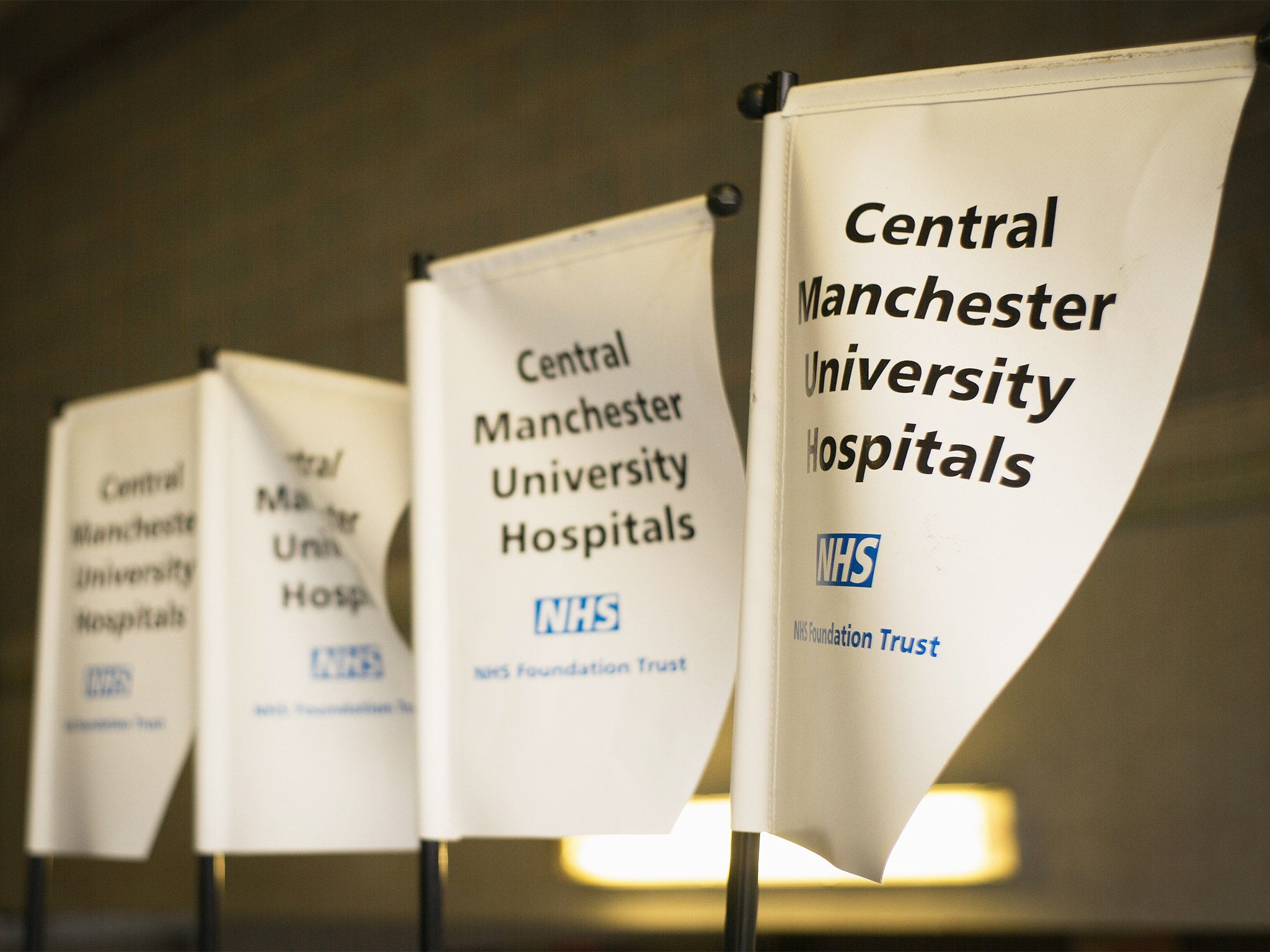Q&A: NHS budget plans for Greater Manchester
The groundbreaking devolved budget will be announced on Friday

Your support helps us to tell the story
From reproductive rights to climate change to Big Tech, The Independent is on the ground when the story is developing. Whether it's investigating the financials of Elon Musk's pro-Trump PAC or producing our latest documentary, 'The A Word', which shines a light on the American women fighting for reproductive rights, we know how important it is to parse out the facts from the messaging.
At such a critical moment in US history, we need reporters on the ground. Your donation allows us to keep sending journalists to speak to both sides of the story.
The Independent is trusted by Americans across the entire political spectrum. And unlike many other quality news outlets, we choose not to lock Americans out of our reporting and analysis with paywalls. We believe quality journalism should be available to everyone, paid for by those who can afford it.
Your support makes all the difference.What do the plans mean for Manchester’s NHS?
Under the plans to be unveiled on Friday, £6bn of spending power will be handed over to a joint group including the Greater Manchester councils and local NHS leaders. Some details are still sketchy, but as it stands this would represent one of the biggest ever decentralisations of power in the English NHS.
Why are they doing it?
Joining up the NHS with council-run social care is considered essential if the country is to cope with a new kind of patient population – increasingly elderly and increasingly needing long-term care, not just episodic visits to hospital that cost the NHS huge amounts of money.
By putting the money into a joint budget shared by local councils and local NHS, it is hoped the two will combine to create a more effective service that looks after more people at home and in their local community – not in hospital.
Will it change how people in Manchester pay for health and care services?
No. NHS care will remain free, as will those social care services that were previously council-funded.
Does it mean Greater Manchester is no longer part of a national NHS?
No. National standards, such as waiting times, will continue to apply and the greater part of the new health and care authority’s funding will come from the national NHS budget. However, critics including anti-privatisation campaigners the National Health Action Party, have warned the move is likely to lead to more outsourcing and could begin a process of “denationalising” the NHS.
Who will control the budget?
It is not clear yet, but it has been confirmed that a group of 10 councils, 14 NHS providers and 12 GP-led Clinical Commissioning Groups are involved in discussions. Manchester’s new elected mayor, a new position created last year and likely to be appointed in the next few years, could also have a major say.
When will the changes come into effect?
The plan is likely to come into force in April 2016.
Has this been tried anywhere else?
The proposals appear to be similar to what is being done in Scotland, following a change in the law last year which will see local councils and local NHS boards sharing budgets. Northern Ireland has had a similar policy of integration since the 1970s. Some parts of England, most successfully Torbay, have also trialled closer working between NHS and social care. Later this year £5.3bn of funding, pooled from council budgets and the NHS, will be shared between all English local authorities to bring forward schemes that integrate health and social care, but these will be on a small scale compared to the wholesale reform planned for Manchester.
Join our commenting forum
Join thought-provoking conversations, follow other Independent readers and see their replies
Comments